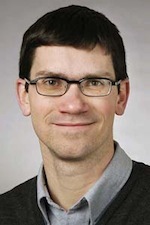Poll compares opinions of public and scholars on foreign policy
How differently does the public view issues of foreign policy from scholars whose job it is to study the subject? Is one group more liberal or conservative than the other? And why do people think what they think?
Those are two very big questions that the first Wisconsin International Policy and Public Opinion (WIPPO) Snap Poll attempts to answer.

Jon Pevehouse
“From an academic standpoint, there’s this stereotype that academics are very liberal,” says Jon Pevehouse, a University of Wisconsin–Madison political science professor. “I certainly have colleagues that that is true of, but others are politically more conservative.”
Principal investigators include Pevehouse and Ryan Powers, a Ph.D. candidate in political science at UW–Madison, and Daniel Maliniak, Susan Peterson and Michael J. Tierney, all of the College of William & Mary.
The poll was done in partnership with the Teaching, Research and International Policy (TRIP) Project at William & Mary. It asked more than 1,000 members of the American public if they supported or opposed the Trans-Pacific Partnership (TPP) trade and investment agreement, and a number of other foreign policy questions designed to gauge liberal and conservative sentiment.
Two points are immediately apparent, Pevehouse says. First, a near majority of Americans either don’t have an opinion or are indifferent to the TPP. This is the case despite the significant media coverage garnered by the congressional debate over Trade Promotion Authority (TPA) in recent weeks. TPA makes it easier for the president to negotiate trade agreements because it ensures that Congress, under most circumstances, will give any needed implementing legislation an up-or-down vote with no amendments.
“From an academic standpoint, there’s this stereotype that academics are very liberal. I certainly have colleagues that that is true of, but others are politically more conservative.”
Jon Pevehouse
Second, those who do have an opinion support the TPP by roughly two to one. Results are broadly in line with a recent Pew Poll on TPP in particular and a recent Reuters/Ipsos poll on new trade deals in general.
Scholars supported the TPP in greater numbers, with 27 percent strongly supporting it compared to 8 percent of the public.
“When it comes to free trade, scholars by a large margin support it while the public is more hesitant,” Pevehouse says. “The theory that some scholars have is that the more education people have about economics, the more willing they are to see free trade as a good thing. There may be job losses in the short term, but in the long run people are often better off. I think the public’s focus is more on the short-term loss.”
The public is far more hawkish than international relations experts when it comes to the use of U.S. military forces abroad. This difference is most pronounced in the case of Iran, where the public is strongly in support of using military force (63 percent) in the event that Iran gets close to producing a nuclear weapon. This contrasts with only 22 percent of scholars who would support the use of force in that case.
“It suggests that scholars tend to be a little more liberal than the public when it pertains to the economy than when it comes to force,” Pevehouse says. “To me, that is very interesting.”
“We have a lot of academic debates about what drives opinions of the public and how people process information every day differently. This poll helps look at those differences.”
Jon Pevehouse
Public respondents were drawn from the Qualtrics Online Sample using quotas so the distribution of age, income and gender among respondents would approximate that of the general public. These quotas helped ensure that the distribution of labor market status in the sample is similar to that of the public as a whole, Pevehouse says.
More than 1,600 scholars from across the country participated in the survey. To be included in our sample, individuals must be employed at a U.S. college or university in a political science department or professional school and teach or conduct research on issues that cross international borders.
More surveys will be done measuring the differences and the similarities between public and scholarly opinion.
“We have a lot of academic debates about what drives opinions of the public and how people process information every day differently,” Pevehouse says. “This poll helps look at those differences.”
Read: Do Americans think strategically when they think about trade?




